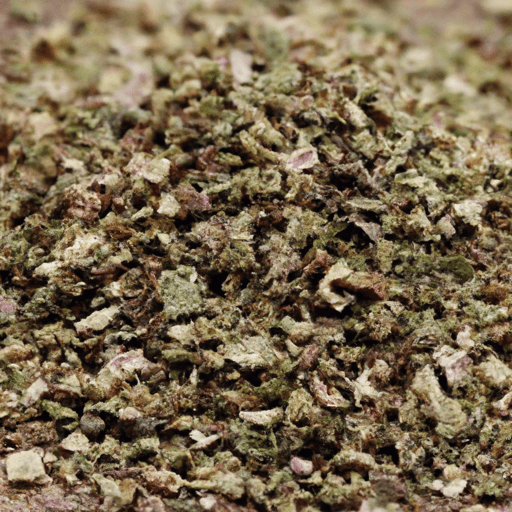The Versatile Ajwain Seed: A Flavorful Addition to Your Culinary Repertoire
If you have a penchant for unique and vibrant flavors in your culinary creations, look no further than the ajwain seed. Hailing from the southern regions of India, these tiny seeds pack a punch with their distinct aroma and taste. In this article, we’ll delve into the fascinating world of ajwain and explore its rich culinary heritage, common uses, nutritional benefits, and intriguing facts.
Taste and Aroma
Ajwain seeds, also known as bishop’s weed or carom seeds, possess a flavor profile that is both bold and complex. Its taste varies from earthy to slightly bitter, with subtle notes of thyme and oregano. The aroma is sharp and pungent, reminiscent of thyme but with an added intensity.
Common Uses in Cooking
Ajwain seeds are a staple ingredient in many Indian and Middle Eastern dishes, where they are used for their distinct flavor and digestive properties. Their intense taste makes them perfect for adding depth to various dishes, including curries, lentil soups, pickles, bread, and snacks.
One of the most popular applications of ajwain seeds is in parathas, a type of Indian flatbread. The seeds are usually added to the dough, infusing it with their unique flavor during the cooking process. The resulting parathas have a delightful fragrance and are incredibly satisfying to eat.
Additionally, ajwain seeds are often used as a topping for savory snacks such as samosas or pakoras. When lightly toasted and sprinkled on these snacks, they lend a distinctive aroma and a pleasing crunch.
Nutritional Value
Beyond their culinary attributes, ajwain seeds also offer a range of potential health benefits. These tiny seeds are a rich source of fiber, providing roughage that aids digestion and promotes gut health. They are also known for their carminative properties, which means they can help alleviate gas and bloating.
Ajwain seeds contain essential oils, such as thymol and terpenes, which possess antimicrobial and antifungal properties. These oils not only contribute to the seed’s unique flavor but also have potential health benefits, such as boosting the immune system and aiding respiratory health.
However, it’s worth noting that while ajwain seeds offer potential health benefits, they should be consumed in moderation, just like any other ingredient.
Interesting History and Facts
For centuries, ajwain seeds have played a vital role in traditional medicine systems, such as Ayurveda, due to their therapeutic properties. They have been used to alleviate various ailments, including digestive issues, asthma, and even as an aphrodisiac.
Ajwain seeds have also found their way into numerous folk remedies and home remedies. For example, in some households, a mixture of ajwain seeds and jaggery (a type of unrefined sugar) is believed to alleviate menstrual pain and cramps.
Furthermore, ajwain seeds have a fascinating historical significance. Ancient Egyptians used ajwain seeds in the embalming process. These seeds were found among the belongings of Tutankhamun, an Egyptian pharaoh. The discovery showcases the enduring presence of these seeds throughout history.
In Conclusion
Ajwain seeds are a versatile and flavorsome addition to any culinary repertoire. Whether you’re seeking to elevate your next curry, infuse fragrance into your parathas, or explore the world of Middle Eastern snacks, these tiny seeds are sure to deliver a memorable taste experience. With their intriguing history, potential health benefits, and unique aroma, ajwain seeds continue to captivate food enthusiasts and spice up kitchens around the world.
So, why not embark on a culinary adventure and embrace the versatile ajwain seed? Your taste buds will thank you!
Ajwain Seed
Origin: Ajwain seed, also known as carom seed, comes from a plant called Trachyspermum ammi. This plant is native to the eastern Mediterranean region and western Asia. It has been cultivated and used for its culinary and medicinal properties for thousands of years.
Common Uses: Ajwain seed is commonly used in various cuisines, including Indian, Middle Eastern, and North African. Its flavor is pungent, bitter, and slightly reminiscent of thyme. Ajwain seed is often used in spice blends, curries, pickles, bread, and snacks. It is also used as a digestive aid and for its potential therapeutic properties.
Nutritional Benefits: Ajwain seed contains several beneficial nutrients. It is a good source of dietary fiber, protein, and minerals like calcium, iron, and phosphorus. It also contains vitamins A, C, and E, as well as antioxidants.
Unique Properties: Ajwain seed possesses unique properties that have made it popular in traditional medicine. It is believed to have carminative properties, which can help relieve gas and improve digestion. It is also used as a home remedy for common ailments like colds, coughs, and toothaches. Furthermore, ajwain seed has antimicrobial properties, and studies have shown potential anti-inflammatory and antifungal effects.
Historical Significance: Ajwain seed has a long history of culinary and medicinal use. In Ayurvedic medicine, it has been used for its digestive benefits and as a remedy for various ailments. Additionally, it has been used traditionally in Indian cuisine to enhance the flavor and aroma of savory dishes.
Please note that while ajwain seed has been used traditionally for its potential health benefits, it is always important to seek professional medical advice before using it as a remedy or supplement.




Use the share button below if you liked it.
It makes me smile, when I see it.